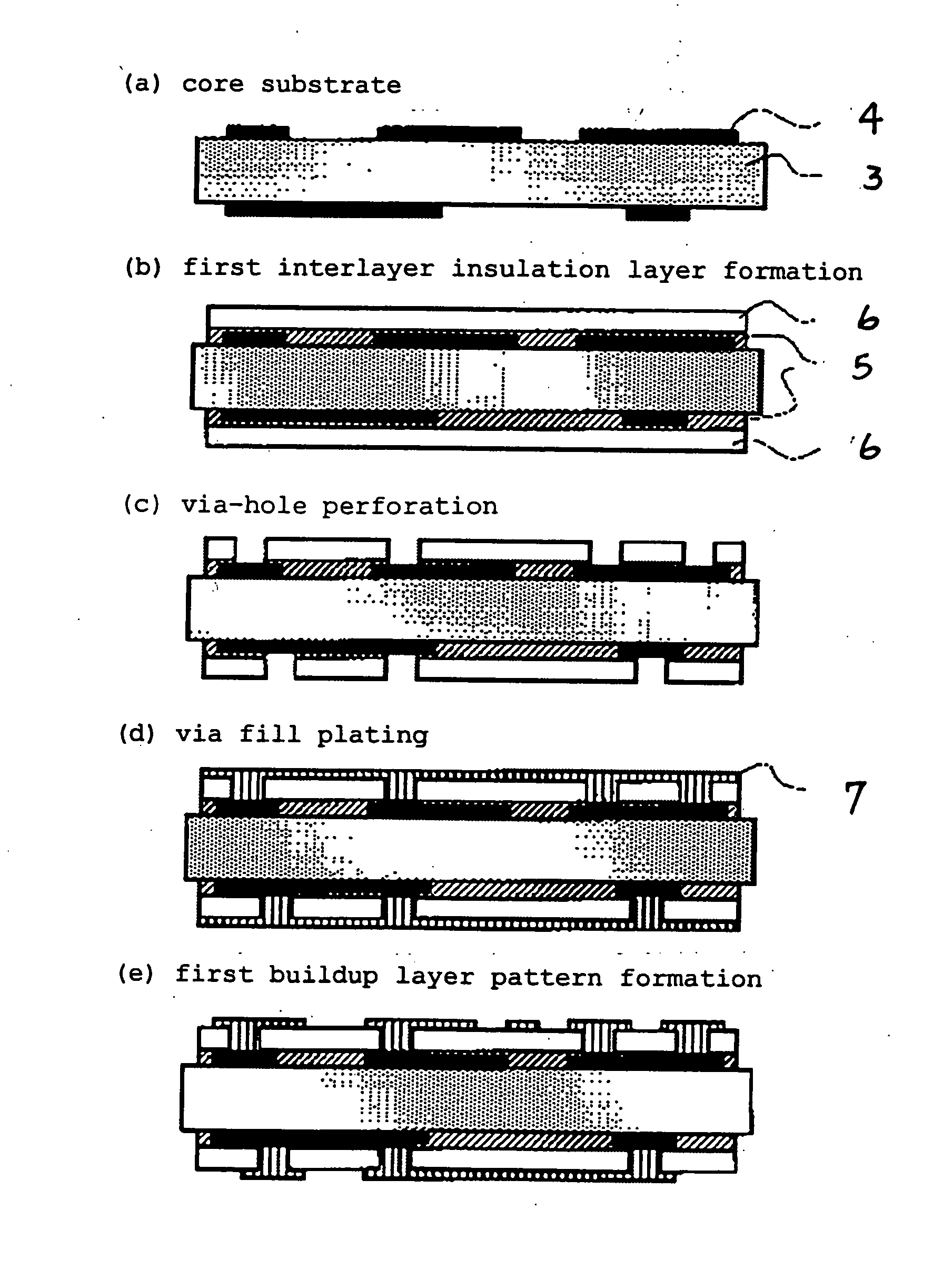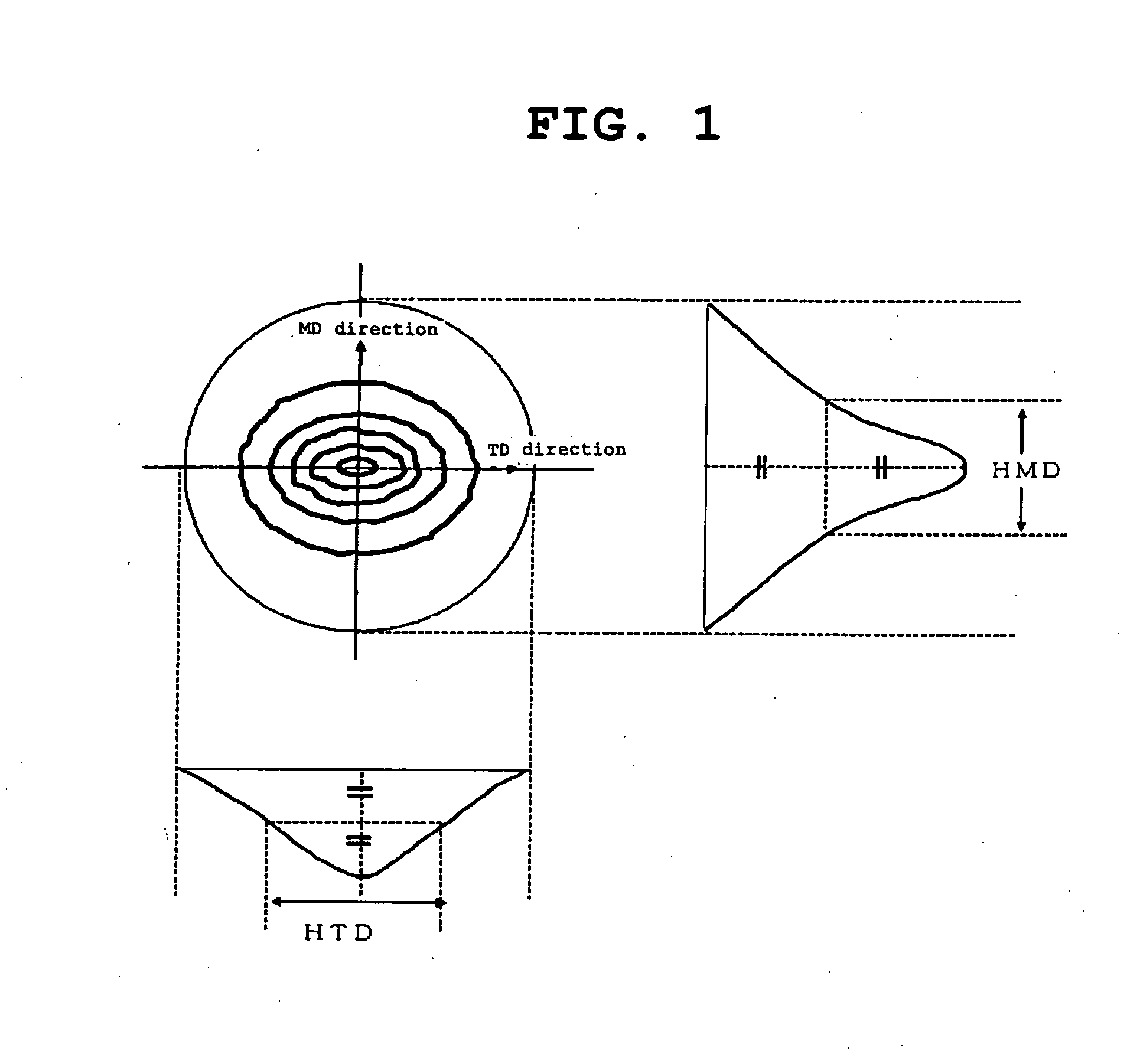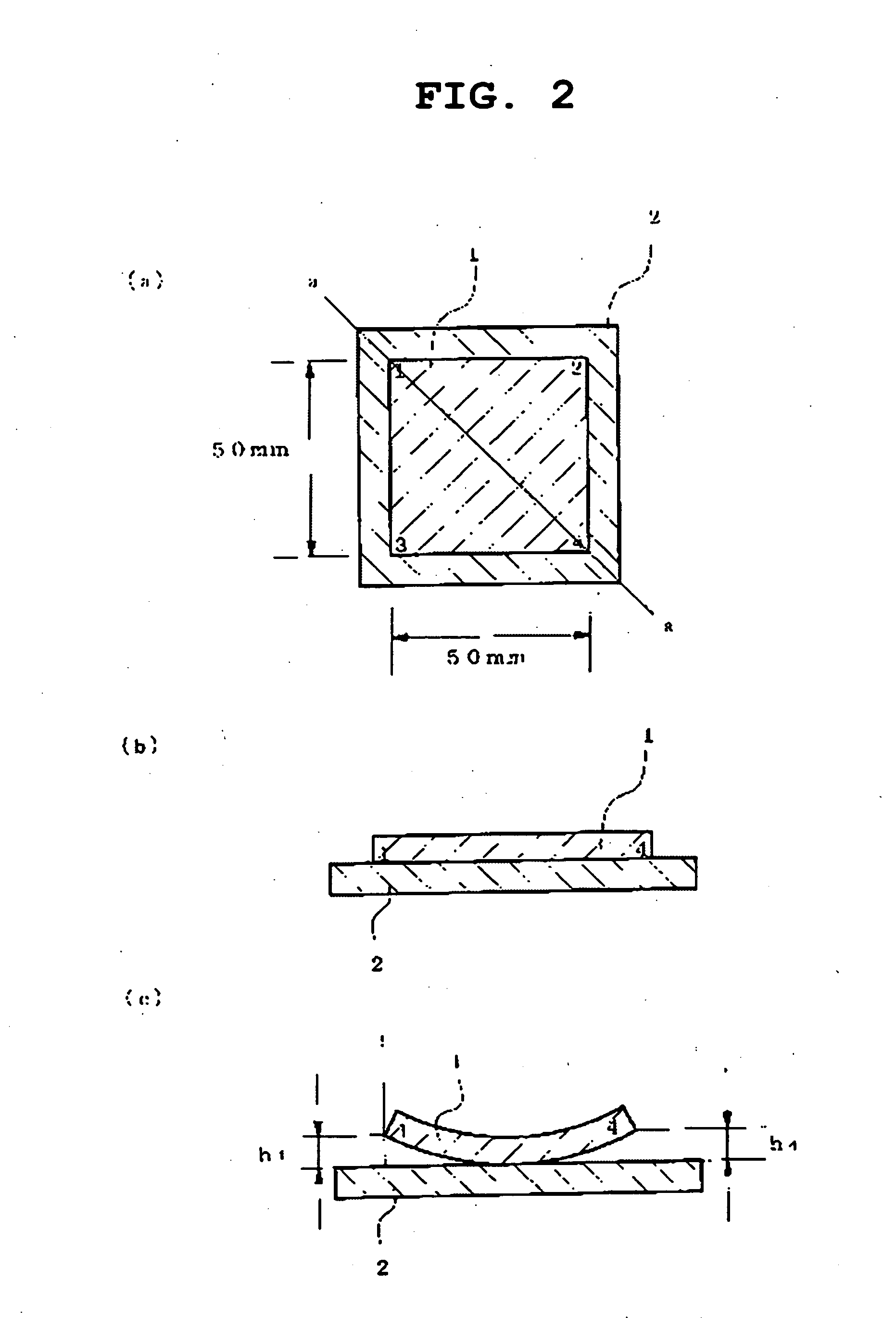Polyimide film
a polyimide film and film technology, applied in the field of polyimide film, can solve the problems of low signal strength, limited application field, low signal strength, etc., and achieve the effects of low loss, good rise of pulse signals, and fast response speed
- Summary
- Abstract
- Description
- Claims
- Application Information
AI Technical Summary
Benefits of technology
Problems solved by technology
Method used
Image
Examples
examples
[0106] The effectiveness of the present invention is explained in the following by referring to Examples, which are not to be construed as limitative. In the following Examples, the evaluation methods of the properties are as follows.
1. Reduced Viscosity (ηsp / C) of Polyamide Acid
[0107] A solution of a polymer in N-methyl-2-pyrrolidone to a polymer concentration of 0.2 g / dl was measured with a Uberode type viscosity tube at 30° C.
2. Film Thickness of Polyimide Film
[0108] The film thickness was measured with a micrometer (Millitron (R)1245D, manufactured by Finepruf).
3. Tensile Elastic Modulus, Tensile Strength at Break and Tensile Elongation at Break of Polyimide Film
[0109] A film after drying was cut out in the longitudinal direction (MD direction) and transverse direction (TD direction) to give a reed-shaped strip (length 100 mm, width 10 mm) as a test piece, which was subjected to the measurement of tensile elastic modulus, tensile strength at break and tensile elongation...
examples 1-4
, Comparative Examples 1-3
Production Example of Polyamide Acid Solution—1
[0177] A reaction container equipped with a nitrogen inlet tube, a thermometer and a stirring rod was purged with nitrogen, and 500 parts by mass of 5-amino-2-(p-aminophenyl)benzoxazole was placed therein. Then, 9000 parts by mass of N-methyl-2-pyrrolidone was added and, after complete dissolution, 485 parts by mass of pyromellitic acid dianhydride was added. The mixture was stirred at 25° C. for 50 hr to give a brown viscous polyamide acid solution. The reduced viscosity (ηsp / C) was 4.6 dl / g.
Production Example of Film—1
[0178] The polyamide acid solution was applied to a stainless belt (squeegee / belt gap was 650 μm) and dried at 90° C. for 60 min. After drying, a self-supporting polyamide acid film was peeled off from a stainless belt to give a green film having a thickness of 40 μm.
[0179] The obtained green film was passed through a nitrogen purged continuous type heat treatment furnace, and heated in two ...
example 5
Production Example of Polyamide Acid Solution—2
[0180] A reaction container equipped with a nitrogen inlet tube, a thermometer and a stirring rod was purged with nitrogen, and 5-amino-2-(p-aminophenyl)benzoxazole (formula 1, 450 parts by mass) and 5-amino-2-(m-aminophenyl)benzoxazole (formula 3, 50 parts by mass) were placed therein. Then, 9100 parts by mass of N,N-dimethylacetamide was added and, after complete dissolution, 485 parts by mass of pyromellitic acid dianhydride was added. The mixture was stirred at 25° C. for 40 hr to give a brown viscous polyamide acid solution A. The ηsp / C thereof was 4.0 dl / g.
Production Example of Film—2
[0181] The polyamide acid solution was applied to a stainless belt (squeegee / belt gap was 650 μm) and dried at 90° C. for 60 min. After drying, a self-supporting polyamide acid film was released from a stainless belt to give a green film having a thickness of 40 μm. The amount of the residual solvent in the green film then was 35% by mass.
[0182] T...
PUM
| Property | Measurement | Unit |
|---|---|---|
| Temperature | aaaaa | aaaaa |
| Temperature | aaaaa | aaaaa |
| Temperature | aaaaa | aaaaa |
Abstract
Description
Claims
Application Information
 Login to View More
Login to View More - R&D
- Intellectual Property
- Life Sciences
- Materials
- Tech Scout
- Unparalleled Data Quality
- Higher Quality Content
- 60% Fewer Hallucinations
Browse by: Latest US Patents, China's latest patents, Technical Efficacy Thesaurus, Application Domain, Technology Topic, Popular Technical Reports.
© 2025 PatSnap. All rights reserved.Legal|Privacy policy|Modern Slavery Act Transparency Statement|Sitemap|About US| Contact US: help@patsnap.com



